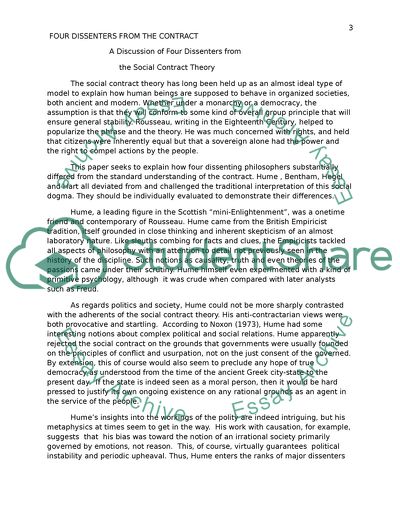Cite this document
(A Discussion of Four Dissenters from the Social Contract Theory Coursework, n.d.)
A Discussion of Four Dissenters from the Social Contract Theory Coursework. https://studentshare.org/philosophy/1773416-political-philosophy-compare-the-anti-contractarian-arguments-from-hume-bentham-hegel-and-hart
A Discussion of Four Dissenters from the Social Contract Theory Coursework. https://studentshare.org/philosophy/1773416-political-philosophy-compare-the-anti-contractarian-arguments-from-hume-bentham-hegel-and-hart
(A Discussion of Four Dissenters from the Social Contract Theory Coursework)
A Discussion of Four Dissenters from the Social Contract Theory Coursework. https://studentshare.org/philosophy/1773416-political-philosophy-compare-the-anti-contractarian-arguments-from-hume-bentham-hegel-and-hart.
A Discussion of Four Dissenters from the Social Contract Theory Coursework. https://studentshare.org/philosophy/1773416-political-philosophy-compare-the-anti-contractarian-arguments-from-hume-bentham-hegel-and-hart.
“A Discussion of Four Dissenters from the Social Contract Theory Coursework”. https://studentshare.org/philosophy/1773416-political-philosophy-compare-the-anti-contractarian-arguments-from-hume-bentham-hegel-and-hart.


